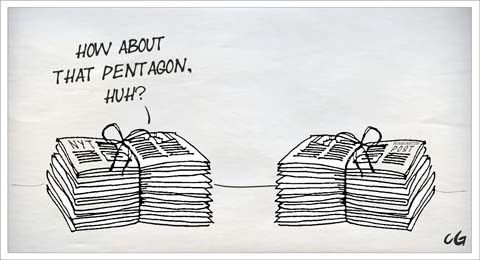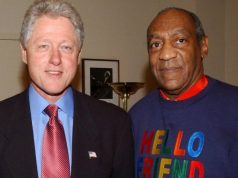There is a profound distinction to be made between seeing and thinking, between witnessing something and unpacking it intellectually. Wrapped up in these concerns, in a complex way, is the powerful tool of public discussion. Almost nothing yields information like working through an idea orally. Nothing beats articulation for teaching the speaker what he is talking about.
The connection between public discourse and personal understanding is precisely the issue in the recent halting of a post-performance discussion of “Top Secret: Battle for the Pentagon Papers,” a play about the struggle by The Washington Post and The New York Times to publish records pertaining to the United States’s involvement in the Vietnam War. The play, according to Andrew Jacobs, ends on a profoundly pro-media note, and conspicuously presents the argument that a robust media structure is necessary to keep any sort of government in check.[i] Obviously, it’s difficult to think about the play’s organizing principle (as a pro-media play) and not reflect on the environment surrounding the stage. What is to be said about performing this play in China? How does the context of a performance change its reception, or, to go even further, its meaning?
What is so strange about “Top Secret” in China is that, even though officials allowed the play to be performed, they decided to cancel the post-performance discussion of the play’s contents. As Jacobs reports:
As far as dramatic timing goes, the text message from the powers that be announcing the sudden cancellation of a post-performance discussion of ‘Top Secret: Battle for the Pentagon Papers’ was, well, perfectly timed.













